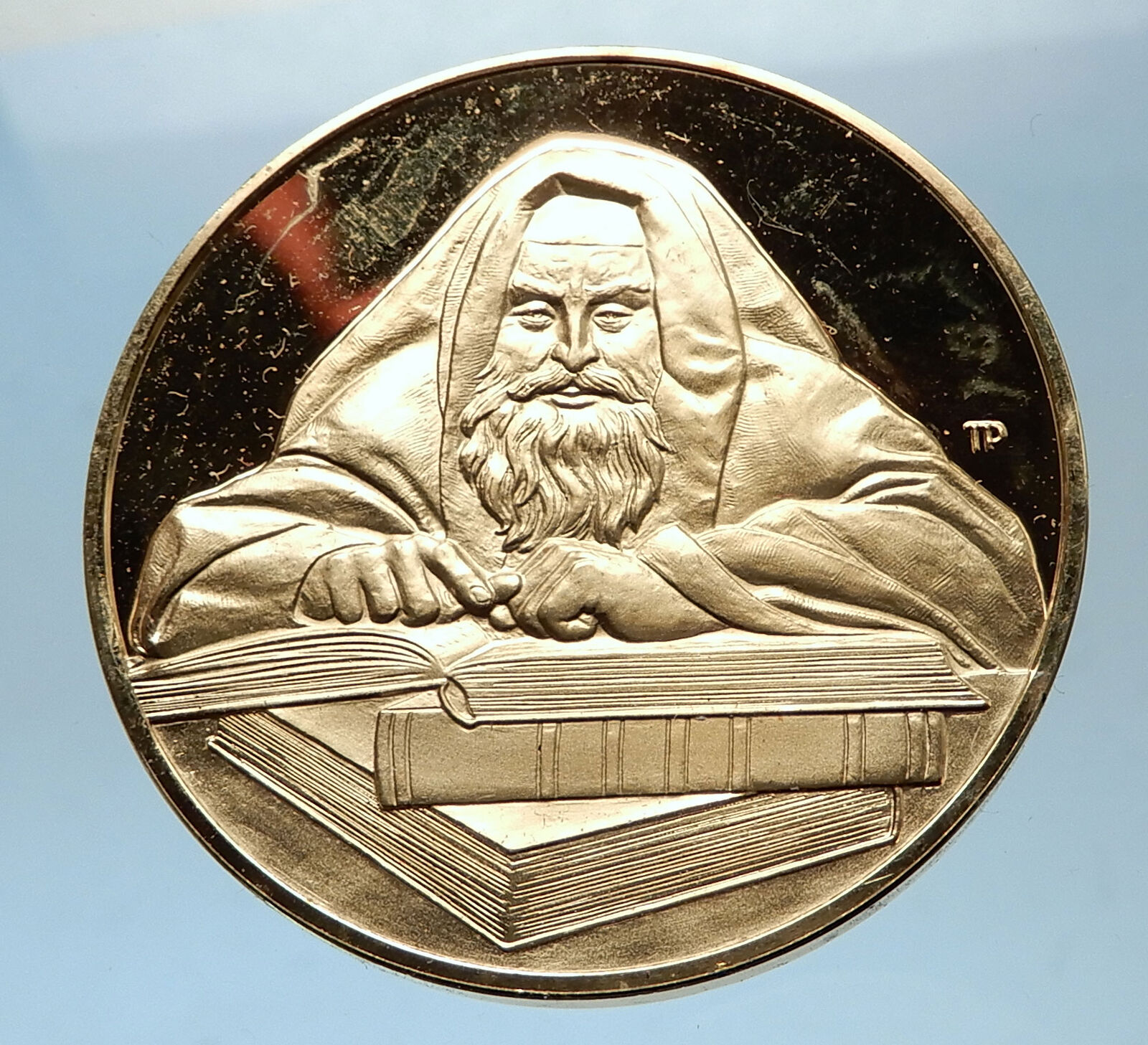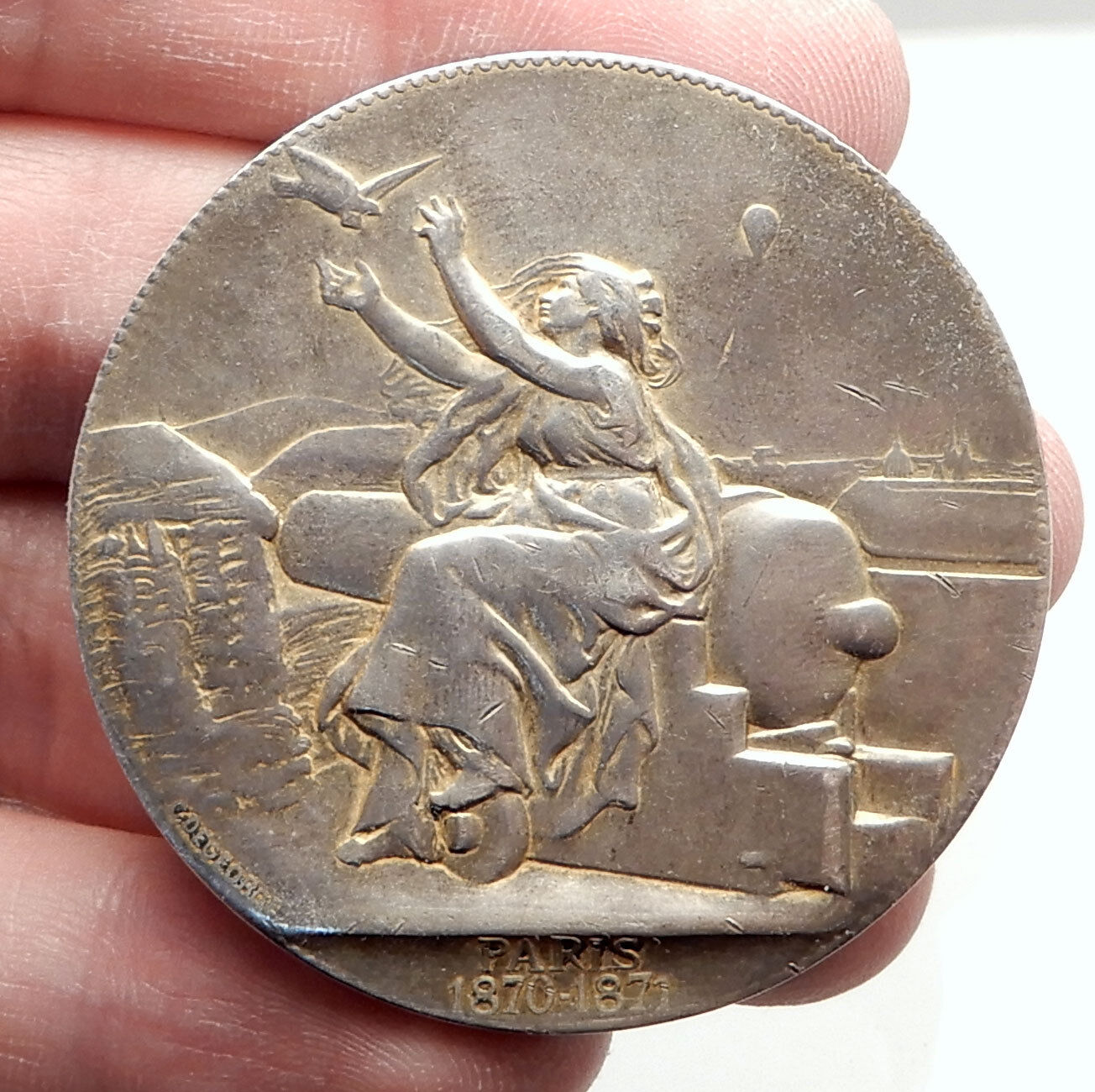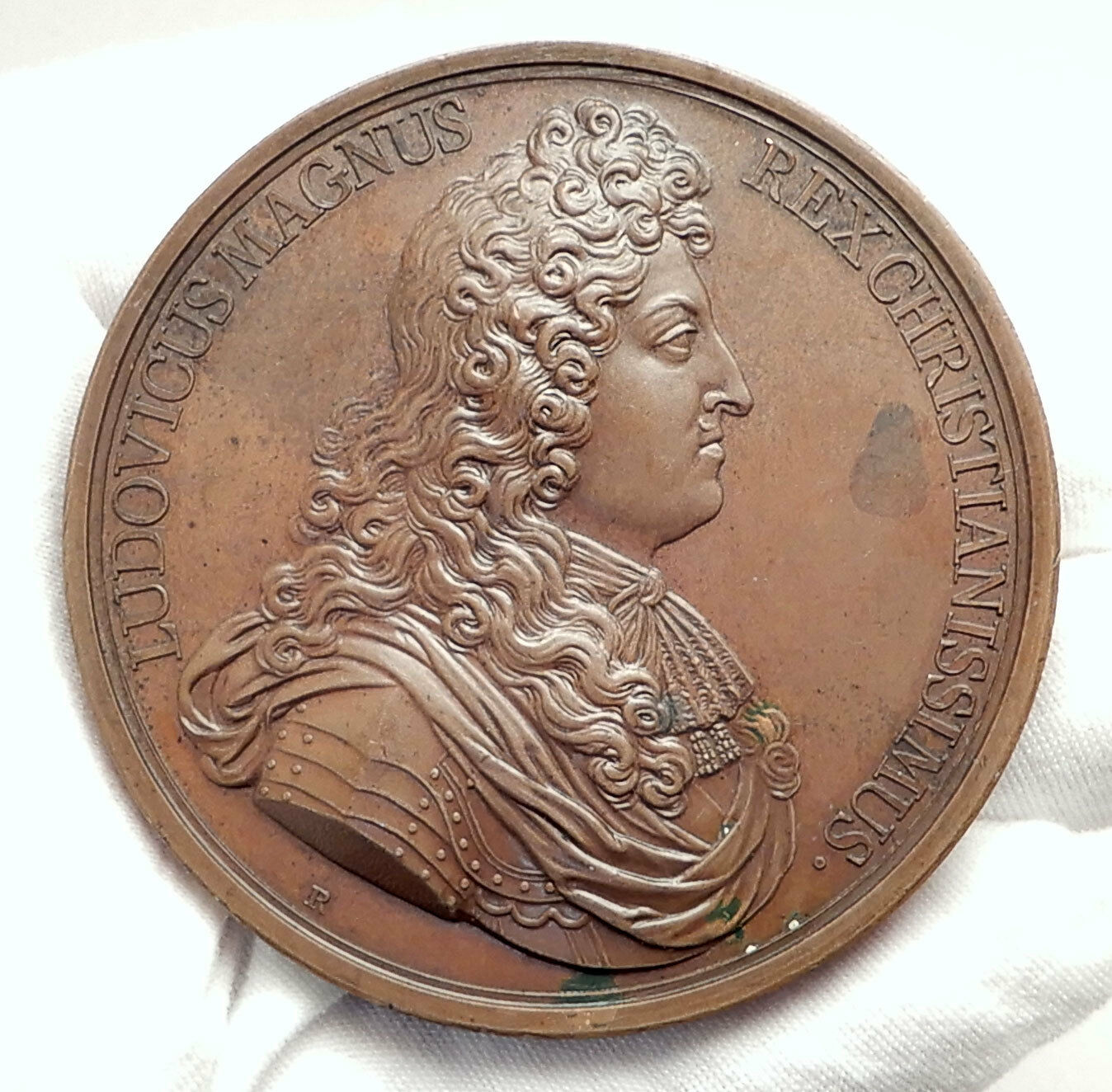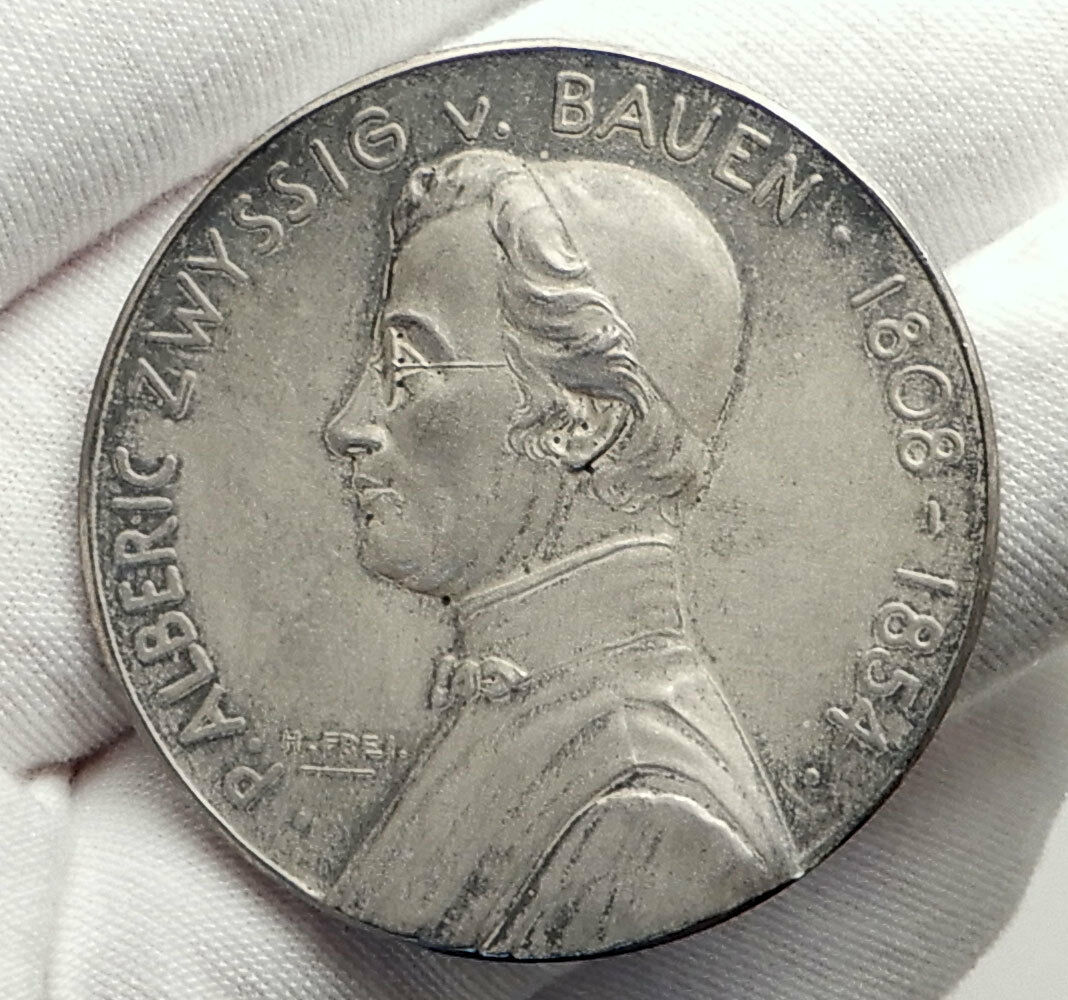|
Great Britain (United Kingdom)
The King and Queen’s Coronation Medal
1911 Aluminum Medal 38mm (5.73 grams)
Reference: Cf N# 235718
KING GEORGE V QUEEN MARY, George and Mary facing left.
TO COMMEMORATE THEIR MAJESTIES CORONATION * JUNE 22ND 1911 *, Crowned Coat-of-Arms.
You are bidding on the exact item pictured, provided with a Certificate of Authenticity and Lifetime Guarantee of Authenticity.
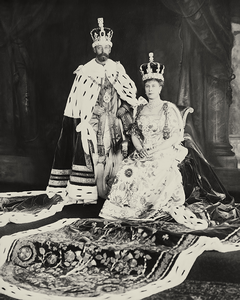 The coronation of George V and his wife Mary as king and queen of the United Kingdom and the British Dominions, and as emperor and empress of India took place at Westminster Abbey, London, on 22 June 1911. This was the second of four such events held during the 20th century and the last to be attended by royal representatives of the great continental European empires. The coronation of George V and his wife Mary as king and queen of the United Kingdom and the British Dominions, and as emperor and empress of India took place at Westminster Abbey, London, on 22 June 1911. This was the second of four such events held during the 20th century and the last to be attended by royal representatives of the great continental European empires.
The order of service was prepared by Claude Jenkins, the Lambeth Palace librarian, an eccentric character who was an antiquarian and patristic scholar. He was supervised by Armitage Robinson, the Dean of Westminster, who insisted that innovation be balanced by tradition. In fact, there was little change from the 1902 coronation, or at least that which had been intended, since the service had been shortened because of Edward’s poor health. Randall Davidson, who as the Bishop of Winchester, had largely compiled the 1902 coronation service, was now Archbishop of Canterbury. Davidson sought the advice of Frank Edward Brightman, a liturgist from Magdalen College, Oxford. The main changes were to the words spoken at the actual crowning, which replaced those first used at the Coronation of James II with a translation of the simpler medieval form, and the coronation sermon, which had been omitted in 1902, was reintroduced for the last time, but in a shorter form. The service was conducted by Davidson, including the crowning of the queen, which in 1902 had been delegated to the Archbishop of York.
 The United Kingdom of Great Britain and Northern Ireland, commonly known as the United Kingdom (UK) or Britain, is a sovereign country in north-western Europe, off the north-western coast of the European mainland. The United Kingdom includes the island of Great Britain, the north-eastern part of the island of Ireland, and many smaller islands within the British Isles. Northern Ireland shares a land border with the Republic of Ireland. Otherwise, the United Kingdom is surrounded by the Atlantic Ocean, with the North Sea to the east, the English Channel to the south and the Celtic Sea to the south-west, giving it the 12th-longest coastline in the world. The Irish Sea separates Great Britain and Ireland. The total area of the United Kingdom is 93,628 square miles (242,500 km2), with an estimated population in 2020 of over 67 million. The United Kingdom of Great Britain and Northern Ireland, commonly known as the United Kingdom (UK) or Britain, is a sovereign country in north-western Europe, off the north-western coast of the European mainland. The United Kingdom includes the island of Great Britain, the north-eastern part of the island of Ireland, and many smaller islands within the British Isles. Northern Ireland shares a land border with the Republic of Ireland. Otherwise, the United Kingdom is surrounded by the Atlantic Ocean, with the North Sea to the east, the English Channel to the south and the Celtic Sea to the south-west, giving it the 12th-longest coastline in the world. The Irish Sea separates Great Britain and Ireland. The total area of the United Kingdom is 93,628 square miles (242,500 km2), with an estimated population in 2020 of over 67 million.
The United Kingdom is a unitary parliamentary democracy and constitutional monarchy. ] The monarch, Queen Elizabeth II, has reigned since 1952. The capital and largest city is London, a global city and financial centre with a metropolitan area population of 14 million. Other major cities include Birmingham, Manchester, Glasgow, Liverpool and Leeds. The United Kingdom consists of four countries: England, Scotland, Wales and Northern Ireland. Other than England, the constituent countries have their own devolved governments, each with varying powers.
The United Kingdom has evolved from a series of annexations, unions and separations of constituent countries over several hundred years. The Treaty of Union between the Kingdom of England (which included Wales, annexed in 1542) and the Kingdom of Scotland in 1707 formed the Kingdom of Great Britain. Its union in 1801 with the Kingdom of Ireland created the United Kingdom of Great Britain and Ireland. Most of Ireland seceded from the UK in 1922, leaving the present United Kingdom of Great Britain and Northern Ireland, which formally adopted that name in 1927.
The nearby Isle of Man, Guernsey and Jersey are not part of the UK, being Crown Dependencies with the British Government responsible for defence and international representation. There are also 14 British Overseas Territories, the last remnants of the British Empire which, at its height in the 1920s, encompassed almost a quarter of the world’s landmass and a third of the world’s population, and was the largest empire in history. British influence can be observed in the language, culture and the legal and political systems of many of its former colonies.
The United Kingdom has the world’s fifth-largest economy by nominal gross domestic product (GDP), and the tenth-largest by purchasing power parity (PPP). It has a high-income economy and a very high human development index rating, ranking 13th in the world. The UK became the world’s first industrialised country and was the world’s foremost power during the 19th and early 20th centuries. Today the UK remains one of the world’s great powers, with considerable economic, cultural, military, scientific, technological and political influence internationally. It is a recognised nuclear state and is ranked fourth globally in military expenditure. It has been a permanent member of the United Nations Security Council since its first session in 1946.
The United Kingdom is a member of the Commonwealth of Nations, the Council of Europe, the G7, the Group of Ten, the G20, the United Nations, NATO, AUKUS, the Organisation for Economic Co-operation and Development (OECD), Interpol, and the World Trade Organization (WTO). It was a member state of the European Communities (EC) and its successor, the European Union (EU), from its accession in 1973 until its withdrawal in 2020 following a referendum held in 2016.
|





 The coronation of George V and his wife Mary as king and queen of the United Kingdom and the British Dominions, and as emperor and empress of India took place at Westminster Abbey, London, on 22 June 1911. This was the second of four such events held during the 20th century and the last to be attended by royal representatives of the great continental European empires.
The coronation of George V and his wife Mary as king and queen of the United Kingdom and the British Dominions, and as emperor and empress of India took place at Westminster Abbey, London, on 22 June 1911. This was the second of four such events held during the 20th century and the last to be attended by royal representatives of the great continental European empires. The United Kingdom of Great Britain and Northern Ireland, commonly known as the United Kingdom (UK) or Britain, is a sovereign country in north-western Europe, off the north-western coast of the European mainland. The United Kingdom includes the island of Great Britain, the north-eastern part of the island of Ireland, and many smaller islands within the British Isles. Northern Ireland shares a land border with the Republic of Ireland. Otherwise, the United Kingdom is surrounded by the Atlantic Ocean, with the North Sea to the east, the English Channel to the south and the Celtic Sea to the south-west, giving it the 12th-longest coastline in the world. The Irish Sea separates Great Britain and Ireland. The total area of the United Kingdom is 93,628 square miles (242,500 km2), with an estimated population in 2020 of over 67 million.
The United Kingdom of Great Britain and Northern Ireland, commonly known as the United Kingdom (UK) or Britain, is a sovereign country in north-western Europe, off the north-western coast of the European mainland. The United Kingdom includes the island of Great Britain, the north-eastern part of the island of Ireland, and many smaller islands within the British Isles. Northern Ireland shares a land border with the Republic of Ireland. Otherwise, the United Kingdom is surrounded by the Atlantic Ocean, with the North Sea to the east, the English Channel to the south and the Celtic Sea to the south-west, giving it the 12th-longest coastline in the world. The Irish Sea separates Great Britain and Ireland. The total area of the United Kingdom is 93,628 square miles (242,500 km2), with an estimated population in 2020 of over 67 million. 

